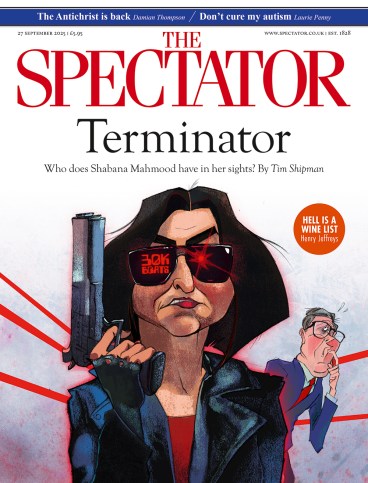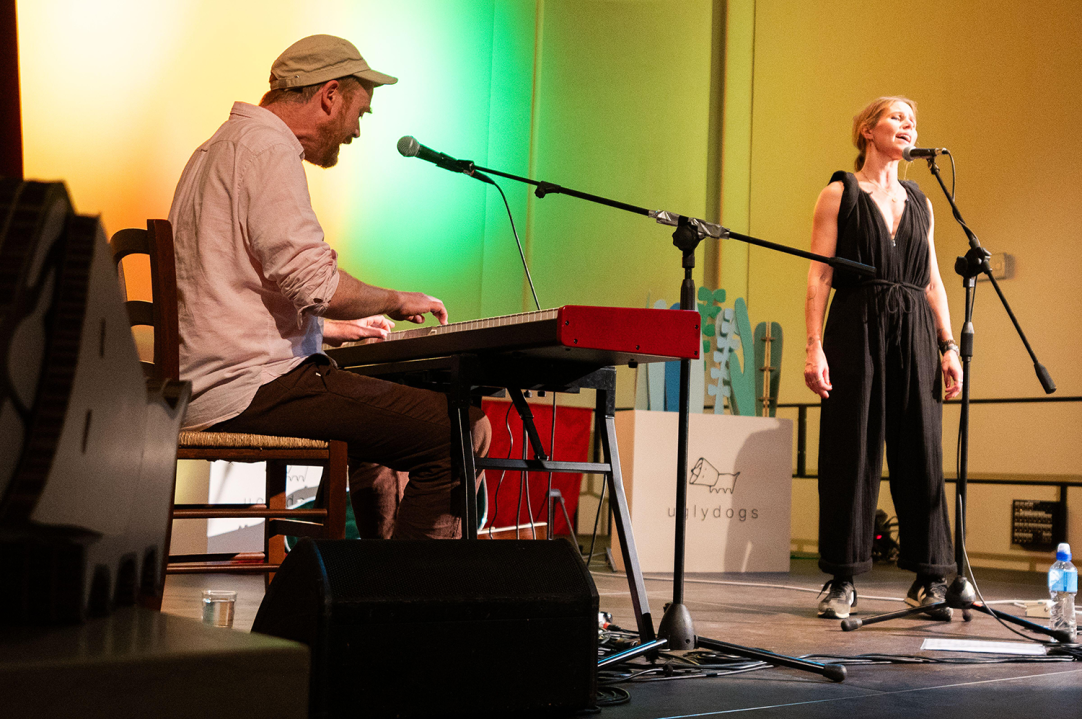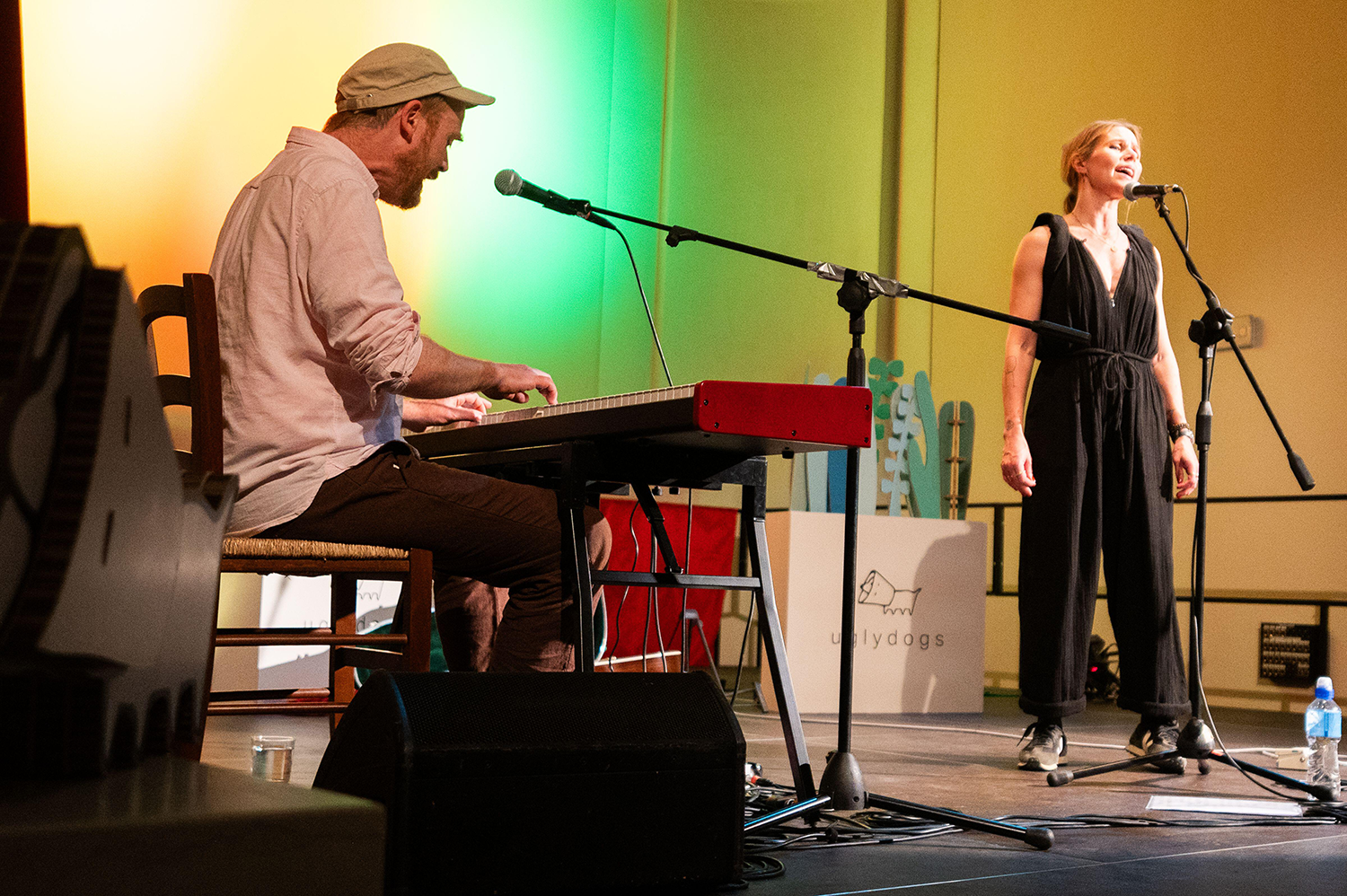
Let’s hear it for the odd couples of popular music: Bowie and Bing. Shaggy and Sting. Metallica and Lou Reed. Nick Cave and Kylie. U2 and Pavarotti.
The ongoing collaboration between James Yorkston and Nina Persson isn’t quite so wildly unlikely as any of these but still seems intrinsically counter-intuitive; until, that is, the realisation dawns that each has a stakehold in the other’s natural territory. Yorkston is a fifty-something Scottish folkie with the honed melodic instincts of a pop aficionada. Persson is a former rock star from Sweden whose voice has the controlled command found in the best traditional singers. Which perhaps explains why a pairing that makes little sense on paper makes perfectly imperfect sense in the flesh.
Yorkston emerged in the early 2000s as part of the Fence Collective, a disparate group of woolly, folk-adjacent artists, including K.T. Tunstall and King Creosote, based in the East Neuk of Fife. Persson will be remembered by some as the singer and co-writer in the Cardigans, who had a hit in the late 1990s with the sparkly indie-disco of ‘Lovefool’. You might now and then still encounter the song on Radio 2 or – it remains a free world, just about – via Baz Luhrmann’s Romeo+Juliet, where it is included on the soundtrack.
The recently released Songs for Nina and Johanna is Yorkston’s second, album-length collaboration featuring Persson, following The Great White Sea Eagle in 2023. The material, written by Yorkston, consists of pop songs in the sense that they are generally short and catchy, with strong melodic hooks. But this is pop music informed by everyone and everything from Ivor Cutler and the Incredible String Band to jazz fusion, the blues, Europop and chanson, alongside an idiosyncratic eye for detail.
As well as a musician, Yorkston is the author of a couple of good novels, and you can tell. The connections in his lyrics between the intellect, the heart and the subconscious are well established. ‘A Sweetness In You’ laments the death of a friend while pondering how much he should tell his children about the details. ‘An Upturned Crab’ is a bittersweet song about the domestic milestones missed while away from home playing shows like this. ‘Love That Tree’ attempts to atone for being an unfeeling cad to a teenage pal.
That the songs often sounded as if they were being made up on the spot is, I think, testament to the craft involved in capturing these quiet yet revelatory moments which punctuate the quotidian life. Inevitably, views will differ on such matters. During a warm and informal evening, there was admittedly the occasional sense that the ‘organic’ couple who live down the road had pushed back the furniture and were putting on an impromptu show for friends after dinner.
This was the first time the duo had performed together in 18 months, said Yorkston, who added that they were nervous. And, indeed, there was the occasional snafu – most notably when they both launched into different songs, twice – but the atmosphere in the room was a forgiving one.
Yorkston alternated between fairly rudimentary playing on the grand piano and rippling accompaniment on acoustic guitar. They shared vocals, often trading lines while conducting a folksy pas de deux: Yorkston skipping to and from the microphone with impish nimbleness, Persson a fixed point in black, serene and deadpan. From time to time, they turned to face each other, swinging their hips and gently swaying as they rat-a-tatted, like the world’s most unlikely Eurovision throwback.
The last time I saw this pair perform, more than two years ago, they were accompanied, as they are on the records, by the Second Hand Orchestra, an off-kilter Swedish ensemble which brought a wild improvisatory spirit to the proceedings. Here, pared down to a duo, the evening lacked the after-hours spontaneity of that show, which became a wild stream of overlapping musical voices. Instead, this felt closer to a 70-minute conversation – between the two artists, first of all, but also between them and us.
I left the building feeling something had been shared. And despite the slow drag of ‘A Hollow Skeleton Lifts A Heavy Wing’, a raw minor-key blues which struggled to rise above the gnawing depression it described, there was an inbuilt lightness, a skip in the step of both the songs and the voices singing them, that provided uplift.








Comments